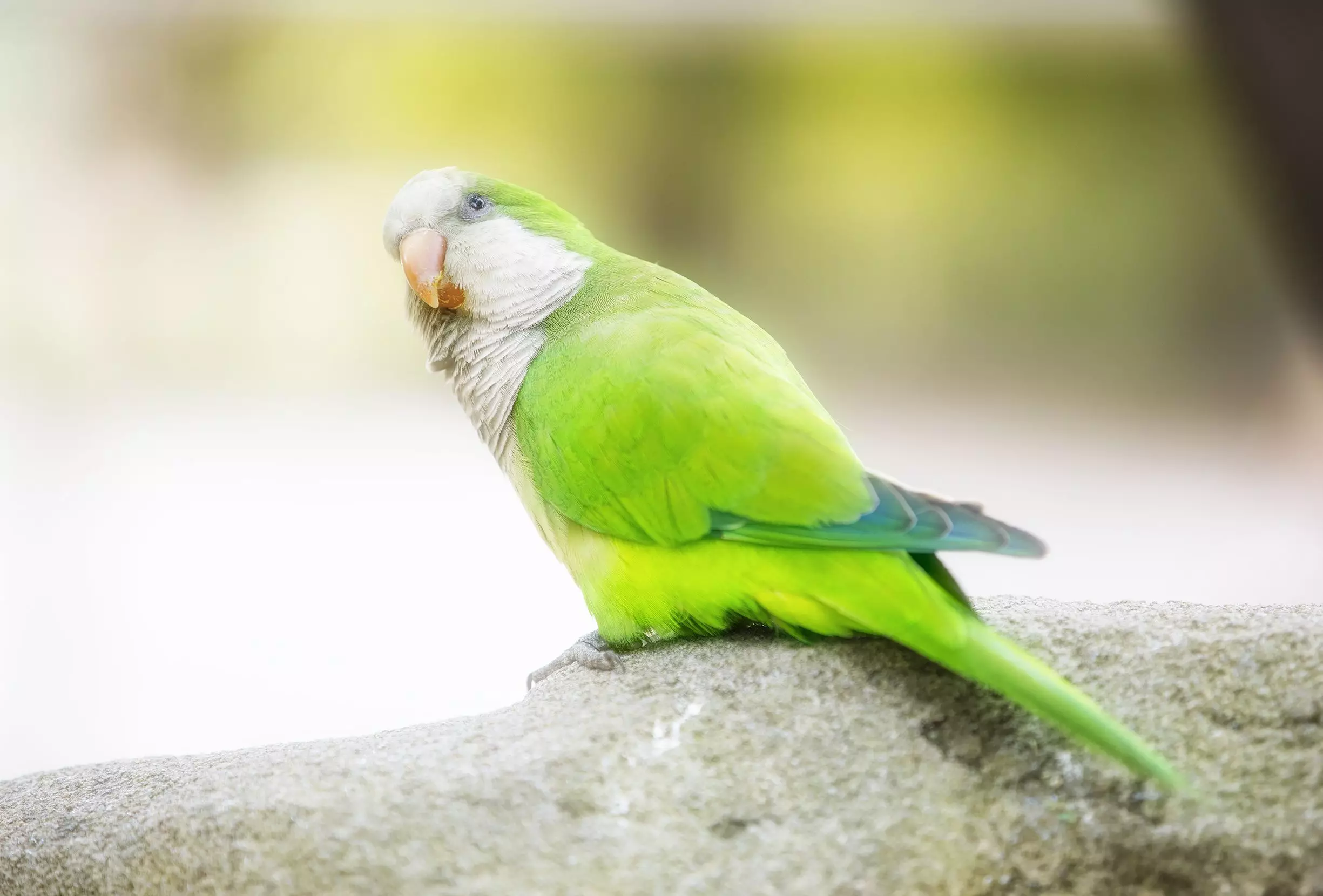Often referred to by several names such as Quaker parakeets, monk parrots, and monk parakeets, the bird species known as Quaker parrots is scientifically identified as Myiopsitta monachus. The intriguing naming of these birds has multiple theories; for instance, some suggest that their title originates from the gray markings on their necks that resemble an old-fashioned Quaker bib. Others attribute their name to the distinct “quaking” motion they make, particularly when agitated or excited. These social and playful birds, commonly seen as companions, exhibit a range of fascinating behaviors that make them appealing to pet owners.
One of the most significant factors a potential parrot owner must consider is the lifespan of Quaker parrots, which ranges from 20 to 30 years on average, though some have lived beyond this. This extended lifetime requires a long-term commitment from owners, who need to provide a stable and nurturing environment for these affectionate birds. The stress that Quaker parrots experience due to sudden changes in their living situations can lead to unhealthy behaviors such as aggression or feather plucking. Hence, if one is looking to adopt a Quaker parrot, they must ensure they can accommodate the bird throughout its lifetime.
Quaker parrots are particularly revered for their sociability and are known to form strong bonds with their human companions. Despite their social nature, Quakers can become overly attached to one person, often leading to jealousy if their owner interacts with others. Their communicative abilities are another remarkable aspect; many owners find that Quakers can develop a notable vocabulary and articulate speech, occasionally rivaling larger parrot species. While not every Quaker will engage in verbal mimicry, their potential for learning words and phrases can certainly create a lively household.
Contrary to popular belief that all parrots require vast spaces, Quaker parrots are medium-sized, approximately 11 to 12 inches in length, and relatively light at 3 to 5 ounces. While space is essential for their well-being, Quakers can adapt to smaller environments compared to larger species, given that they are provided with adequate stimulation and opportunities for physical activity outside their cages. Essential components of housing include sturdy, bird-safe materials to prevent escape through their cleverness and chewing instincts. Ownership also includes a responsibility to offer engaging toys and materials for nesting, echoing their natural tendencies.
Like many birds, Quaker parrots can become overweight if their diets are not attentively managed. A balanced diet consisting of high-quality pellets and a mixture of seeds, complemented by fresh fruits and vegetables, closely mirrors their natural foraging behavior. Special care should be taken to limit high-fat treats to avoid obesity. Understanding nutritional needs is a crucial part of being a responsible parrot owner, as a healthy diet helps maintain both the physical and psychological well-being of these birds.
When introducing a Quaker parrot to a new home, it’s common for the bird to display signs of nervousness or anxiety. Owners are encouraged to establish trust through gentle, regular interaction, starting with sitting near their cage and gradually moving to physical closeness and offering treats. Engaging with Quakers is essential for their emotional health since they thrive on companionship—either from other pets or human interaction. Be aware that, while they love attention, they can also be demanding, and their loud vocalizations can sometimes be challenging for new pet owners to manage.
It is crucial to check local regulations before acquiring a Quaker parrot. They are prohibited in several states across the United States, including California, Colorado, and Connecticut, which could affect potential owners’ decisions. Additionally, considering the financial aspect of owning a Quaker parrot is important, as initial costs range from $300 to $600, along with additional expenses for veterinary visits and supplies.
Quaker parrots are lively, sociable, and intelligent companions that can bring joy to many households. Prospective owners should prioritize understanding the unique needs of these birds—ranging from diet and socialization to legal constraints—to ensure a fulfilling and long-lasting relationship. With proper care and attention, Quaker parrots can thrive and become beloved members of the family for decades.

